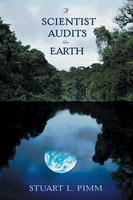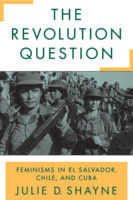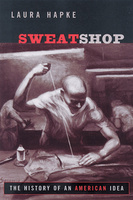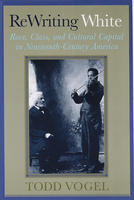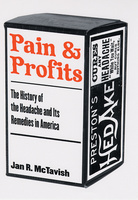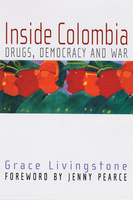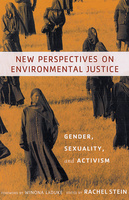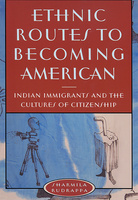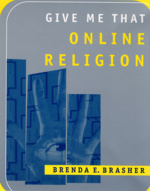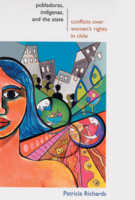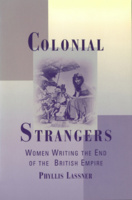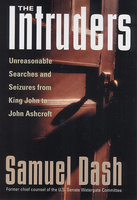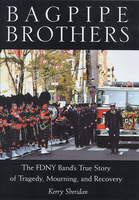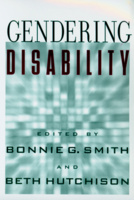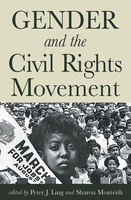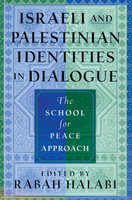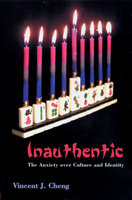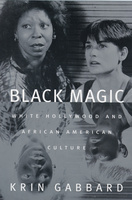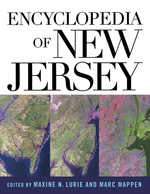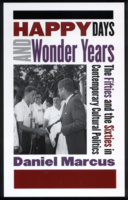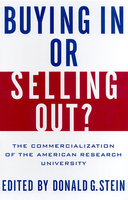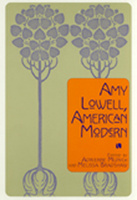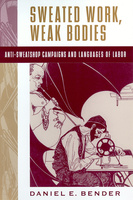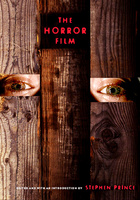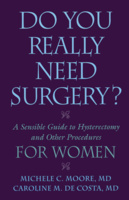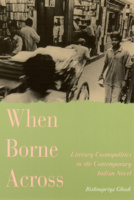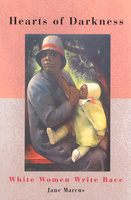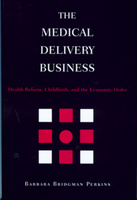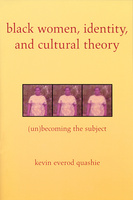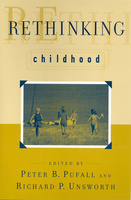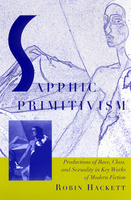Resurgent Voices in Latin America
Indigenous Peoples, Political Mobilization, and Religious Change
Resurgent Voices in Latin America offers new insight into the dynamics of indigenous social movements and into the complex and changing world of Latin American religions. The essays show that religious beliefs, practices, and institutions have both affected and been affected by political activism.
A Scientist Audits the Earth
The Revolution Question
Feminisms in El Salvador, Chile, and Cuba
Sweatshop
The History of an American Idea
Arguing that the sweatshop is as American as apple pie, Laura Hapke surveys over a century and a half of the language, verbal and pictorial, in which the sweatshop has been imagined and its stories told. Not seeking a formal definition of the sort that policymakers are concerned with, nor intending to provide a strict historical chronology, this unique book shows, rather, how the “real” sweatshop has become intertwined with the “invented” sweatshop of our national imagination, and how this mixture of rhetoric and myth has endowed American sweatshops with rich and complex cultural meaning. An important contribution to the real and imagined history of garment industry exploitation, this book provides a valuable new context for understanding contemporary sweatshops that now represent the worst expression of an unregulated global economy.
Rewriting White
Race, Class, and Cultural Capital in Nineteenth-Century America
What did it mean for people of color in nineteenth-century America to speak or write "white"? More specifically, how many and what kinds of meaning could such "white" writing carry? In ReWriting White, Todd Vogel looks at how America has racialized language and aesthetic achievement.
Pain and Profits
The History of the Headache and Its Remedies in America
Inside Colombia
Drugs, Democracy, and War
Chemical Consequences
Environmental Mutagens, Scientist Activism, and the Rise of Genetic Toxicology
New Perspectives on Environmental Justice
Gender, Sexuality, and Activism
Ethnic Routes to Becoming American
Indian Immigrants and the Cultures of Citizenship
In Ethnic Routes to Becoming American, Sharmila Rudrappa examines the paths South Asian immigrants in Chicago take toward assimilation in the late twentieth-century United States, where deliberations on citizenship rights are replete with the politics of recognition.
Give Me That Online Religion
Pobladoras, Indígenas, and the State
Conflict Over Women's Rights in Chile
New Jersey Parks, Forests, and Natural Areas
A Guide
Now in its third edition, this updated guide—the first of its kind for New Jersey—lists over 250 parks, forests, and natural areas in the Garden State, from national, state, city, and county parks to nature preserves run by non-profit groups, arboretums, and undeveloped wildlife management areas. Wherever you live in New Jersey, you can find a beautiful place nearby for picnicking, hiking, camping, hunting, fishing, boating, and a host of other outdoor activities. All are open to the public, and most are free or charge only a small fee. Michael Brown divides the state into six regions along county lines and includes helpful maps, so outdoor enthusiasts can easily plan excursions.
Colonial Strangers
Women Writing the End of the British Empire
Drawing on memoirs, fiction, reportage, and film adaptations, Colonial Strangers explores the critical perspectives of writers who correct prevailing stereotypes of British women as agents of imperialism. They also question their own participation in British claims of moral righteousness and British politics of cultural exploitation. These authors take center stage in debates about connections between the racist ideologies of the Third Reich and the British Empire.
Colonial Strangers reveals how the literary responses of key artists represent not only compelling reading, but also a necessary intervention in colonial and postcolonial debates and the canons of modern British fiction.
The Intruders
Unreasonable Searches and Seizures from King John to John Ashcroft
What led to the Fourth Amendment’s protection of the people against unreasonable searches and seizures, codified in written law for the first time in history, and are we in danger of losing that protection? Celebrated lawyer Samuel Dash, known for his role as Chief Counsel of the Watergate Committee, explores the struggle for privacy. He does so by telling the dramatic tales of the people who were involved in influential legal battles, including landmark Supreme Court cases.
Bagpipe Brothers
The FDNY Band's True Story of Tragedy, Mourning, and Recovery
A Cruising Guide to New Jersey Waters
Gendering Disability
Contributors to this innovative collection explore the intersection of gender and disability in the arts, consumer culture, healing, the personal and private realms, and the appearance of disability in the public sphere—both in public fantasies and in public activism. Beginning as separate enterprises that followed activist and scholarly paths, gender and disability studies have reached a point where they can move beyond their boundaries for a common landscape to inspire new areas of inquiry. Whether from a perspective in the humanities, social sciences, sciences, or arts, the shared subject matter of gender and disability studies—the body, social and cultural hierarchy, identity, discrimination and inequality, representation, and political activism—insistently calls for deeper conversation. This volume provides fresh findings not only about the discrimination practiced against women and people with disabilities, but also about the productive parallelism between these two categories.
Gender and the Civil Rights Movement
Israeli and Palestinian Identities in Dialogue
The School for Peace Approach
Inauthentic
The Anxiety over Culture and Identity
Being Rita Hayworth
Labor, Identity, and Hollywood Stardom
Black Magic
White Hollywood and African American Culture
As Krin Gabbard brilliantly reveals in Black Magic, we duly recognize the cultural heritage of African Americans in literature, music, and art, but there is a disturbing pattern in the roles that blacks are asked to play-particularly in the movies. Many recent films, including The Matrix, Fargo, The Green Mile, Ghost, The Talented Mr. Ripley, Pleasantville, The Bridges of Madison County, and Crumb, reveal a fascination with black music and sexuality even as they preserve the old racial hierarchies. Quite often the dependence on African American culture remains hidden-although it is almost perversely pervasive. In the final chapters of Black Magic, Gabbard looks at films by Robert Altman and Spike Lee that attempt to reverse many of these widespread trends.
Encyclopedia of New Jersey
Happy Days and Wonder Years
The Fifties and the Sixties in Contemporary Cultural Politics
Buying In or Selling Out?
The Commercialization of the American Research University
Universities were once ivory towers where scholarship and teaching reigned supreme, or so we tell ourselves. Whether they were ever as pure as we think, it is certainly the case that they are pure no longer. Administrators look to patents as they seek money by commercializing faculty discoveries; they pour money into sports with the expectation that these spectacles will somehow bring in revenue; they sign contracts with soda and fast-food companies, legitimizing the dominance of a single brand on campus; and they charge for distance learning courses that they market widely. In this volume, edited by Donald G. Stein, university presidents and others in higher education leadership positions comment on the many connections between business and scholarship when intellectual property and learning is treated as a marketable commodity.
Amy Lowell, American Modern
Amy Lowell, American Modern offers the most sustained examination of Lowell to date. It returns her to conversation and to literary history where she belongs.
Sweated Work, Weak Bodies
Anti-Sweatshop Campaigns and Languages of Labor
Sweated Work, Weak Bodies is the first book on the origins of sweatshops, exploring how they came to represent the dangers of industrialization and the perils of immigration. It is an innovative study of the language used to define the sweatshop, how these definitions shaped the first anti-sweatshop campaign, and how they continue to influence our current understanding of the sweatshop.
The Promise Keepers
Servants, Soldiers, and Godly Men
“Remember the Promise Keepers?” queries a recent media story on the evangelical men’s movement that captured America’s imagination and generated intense controversy during much of the 1990s. John P. Bartkowski has written the first account scrutinizing the turbulent forces that contributed to the group’s wild popularity, declining fortunes, and current efforts to reinvent itself.
The Horror Film
Do You Really Need Surgery?
A Sensible Guide to Hysterectomy and Other Procedures for Women
At last, here is a user-friendly guide to gynecologic surgery. Using anecdotes drawn from a combined fifty years of experience, doctors Moore and de Costa provide clear and accurate information about women's anatomy, physiology, common gynecological ailments, diagnosis, alternative treatments, and, finally, full details about surgery itself.
When Borne Across
Literary Cosmopolitics in the Contemporary Indian Novel
Hearts of Darkness
White Women Write Race
The Medical Delivery Business
Health Reform, Childbirth, and the Economic Order
Black Women, Identity, and Cultural Theory
(Un)Becoming the Subject
Rethinking Childhood
In Rethinking Childhood, twenty contributors, coming from the disciplines of anthropology, government, law, psychology, education, religion, philosophy, and sociology, provide a multidisciplinary view of childhood by listening and understanding the ways children shape their own futures. Topics include education, poverty, family life, divorce, neighborhood life, sports, the internet, and legal status.
Inspecting Jews
American Jewish Detective Stories
Sapphic Primitivism
Productions of Race, Class, and Sexuality in Key Works of Modern Fiction
Public Dollars, Private Stadiums
The Battle over Building Sports Stadiums
A Vital Force
Women in American Homeopathy
Homeopathy, as a medical system, presented a significant institutional and economic challenge to conventional medicine in the nineteenth century. Although contemporary critics portrayed homeopathic physicians as part of a sect whose treatment of disease was beyond the pale of acceptable medical practice, homeopathy was in many ways similar to established medicine. Anne Taylor Kirschmann explores the strategic choices and consequences for women practitioners. Not only were female homeopaths respected within their communities, they also enjoyed considerable professional advantages not available to women within regular medicine.
A Vital Force: Women in American Homeopathy offers a new interpretation of women’s roles in modern medicine. Kirschmann strengthens and clarifies the history of homeopathic women physicians and creates a framework of comparison to “regular,” or orthodox, physicians. Women medical practitioners chose homeopathy in dramatic numbers from the mid-nineteenth through the early twentieth centuries, although the reasons for this preference varied over time. Linked to social reform movements in the nineteenth century, anti-modernism in the late nineteenth and early twentieth, and countercultural ideals of the 1960s and 1970s, women's advocacy of homeopathy has been intertwined with broad social and cultural issues in American society.


